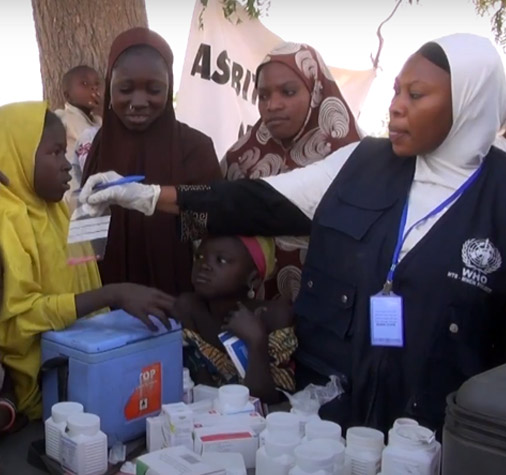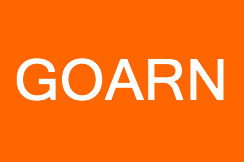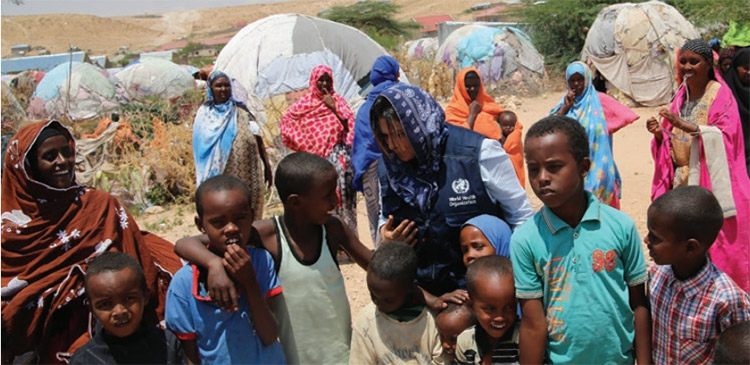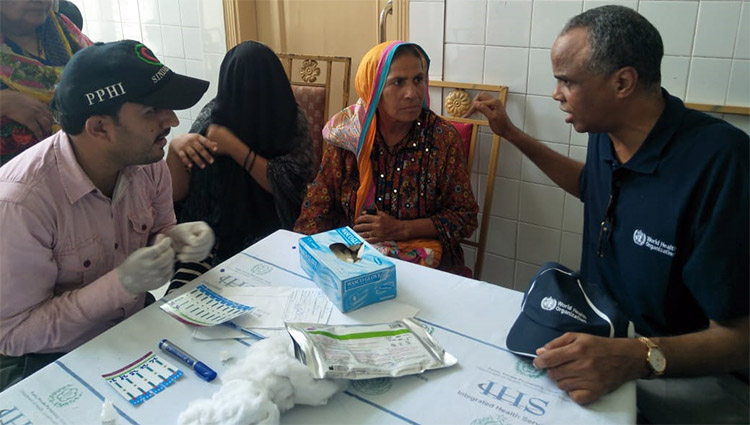The Global Outbreak Alert and Response Network in the Eastern Mediterranean Region


The Global Outbreak Alert and Response Network (GOARN) was established in April 2000 as a global network of technical institutions and networks that have the capacity to contribute resources to international disease outbreak response.
The network coordinates human and technical resources for rapid identification, confirmation and response to outbreaks of international importance.
GOARN is guided by a steering committee that consists of up to 20 representatives from participating institutions and networks. An operational support team (OST) based at WHO headquarters coordinates and conducts the day-to-day activities of the network.
GOARN assists in increasing global health security through:
rapidly detecting, verifying and responding to outbreaks of emerging infectious diseases with potential for international spread;
ensuring that the requisite technical support reaches affected areas immediately;
providing support for long-term epidemic preparedness and capacity-building.
The network at the global level has expanded to include over 300 partner institutions, including government agencies, universities, laboratories, nongovernmental organizations, international organizations and a range of related networks in specialist areas and diseases.
GOARN in the Eastern Mediterranean Region

In early 2015, it was decided to strengthen GOARN within each WHO region by having the regional offices build equitable capacity for outbreak detection and response for rapid deployment.
The high number of outbreaks and emergencies in the Eastern Mediterranean Region reflected the need to build partnerships to augment and streamline available technical expertise and resources.
The Infectious Hazard Prevention and Preparedness unit of the Health Emergencies Programme acts as the regional OST and secretariat for GOARN within the WHO Regional Office for the Eastern Mediterranean.
The first regional meeting for GOARN was held with regional partners (technical institutions and networks) on 14‒15 December 2016, with the aim of formalizing relationships, including signing a letter of agreement between member institutions and WHO for frequent information sharing with partners.
To date, the WHO Regional Office has 17 institutions and networks within its GOARN partnership from 12 countries (Djibouti, Egypt, Islamic Republic of Iran, Jordan, Lebanon, Morocco, Oman, Pakistan, Saudi Arabia, Sudan, Tunisia, and United Arab Emirates). These include:
two academic institutions;
nine epidemiology departments or national centres for disease control within ministries of health;
one public health network;
four research institutes;
one national public health laboratory.
List of current member institutions
|
Sr. No. |
Institution Name |
Country |
Type |
|
1. |
American University of Beirut Medical Center |
Lebanon |
Academic institution |
|
2. |
US Centers for Disease Control country office |
Egypt |
Governmental organization |
|
3 |
Center for Communicable Diseases Control, Ministry of Health and Medical Education |
Islamic Republic of Iran |
Governmental organization |
|
4 |
Directorate of Epidemiology and Health Information, Ministry of Health |
Djibouti |
Governmental organization |
|
5 |
Directorate General for Disease Surveillance and Control, Ministry of Health |
Oman |
Governmental organization |
|
6 |
Directorate of Epidemiology and Control Diseases, Ministry of Health |
Morocco |
Governmental organization |
|
7 |
Eastern Mediterranean Public Health Network (EMPHNET) |
Jordan |
Network hub |
|
8 |
Faculty of Public Health, Lebanese University |
Lebanon |
Academic institution |
|
9 |
Institut Pasteur Du Maroc |
Morocco |
Academic institution |
|
10 |
Institut Pasteur de Tunis |
Tunisia |
Academic institution |
|
11 |
Institute Pasteur of Iran |
Islamic Republic of Iran |
Academic institution |
|
12 |
Jordan Food and Drug Administration |
Jordan |
Governmental organization |
|
13 |
King Abdulaziz Medical City, National Guard Health Affairs |
Saudi Arabia |
Governmental organization |
|
14 |
Emergency, Crisis and Disaster Operations Center, Ministry of Health and Prevention |
United Arab Emirates |
Governmental organization |
|
15 |
National Public Health Laboratory, Ministry of Health |
Sudan |
Governmental organization |
|
16 |
Ministry of Public Health |
Lebanon |
Governmental organization |
|
17 |
National Institute of Health |
Pakistan |
Governmental organization |
Recent achievement and deployments

From 2015 to 2019, rapid response team training was held with 890 participants from 21 countries and territories in the Region. The aim was to build local capacities for rapid outbreak detection, verification and response.
Sudan
One laboratory expert was deployed in October 2019 to strengthen readiness of laboratories at both the central and state levels to effectively deal with six ongoing outbreaks.
Two epidemiologists were deployed in October and November 2019 to strengthen epidemiology and data management capacities at the WHO country office and Ministry of Health.
Pakistan
25 experts were deployed in 2019 to provide support for the HIV outbreak (Larkana district, Sindh province). They provided support in the areas of HIV care, laboratories, infection prevention and control, blood safety, outbreak investigation and case-control studies.
Five experts were deployed in 2019 to provide support for the dengue outbreak in the areas of case management, laboratory investigations and emergency risk communication.
Yemen
10 experts were deployed in 2019 to provide support for cholera case management, laboratory investigation, oral cholera vaccination campaigns and eDEWS surveillance.
Islamic Republic of Iran
Five experts were deployed during the floods in May to October 2019 for cholera risk assessment, rapid response team training and rapid assessment of disease surveillance.
Tunisia
Three experts were deployed during the 2019 during measles outbreak to provide support for epidemiology, immunization and risk communication.
Regional GOARN training
A 5-day scenario-based training on outbreak response was held from 23 to 31 October 2016 in Dead Sea, Jordan. Twenty-four (24) participants comprising specialists in public health, epidemiology, entomology, environmental health, laboratory, and clinicians from 19 countries, were trained. Participants’ overall feedback and course evaluations were good/excellent, and most of them indicated that they were readily deployable following the training.
Support to regional COVID-19 response
Two specialists (epidemiology and infectious diseases) were deployed to Yemen in June and July 2020 for six weeks to build capacity and strengthen COVID-19 surveillance and case management, respectively.
Two specialists (epidemiology and clinical case management) are being deployed to occupied Palestinian territory (oPt) to support the COVID-19 response.
COVID-19 response assessment and technical support missions have taken place in multiple countries, including Syrian Arab Republic, Pakistan, Islamic Republic of Iran, Egypt, Bahrain, and Kuwait.
Requests from countries have also been received to provide specialist deployments to support COVID-19 laboratory activities.
Way forward
Actively participating in the 2020 global GOARN celebrations marking 20 years since the network was established.
Expanding through advocacy and recruitment of new partners.
Expanding field deployments (risk assessment, response, governance, training and operational research).
Building capacities and conducting training.
Holding regional GOARN coordination meetings.
For more information please contact:
Related links
Partnership with Global Outbreak Alert and Response Network (GOARN)


